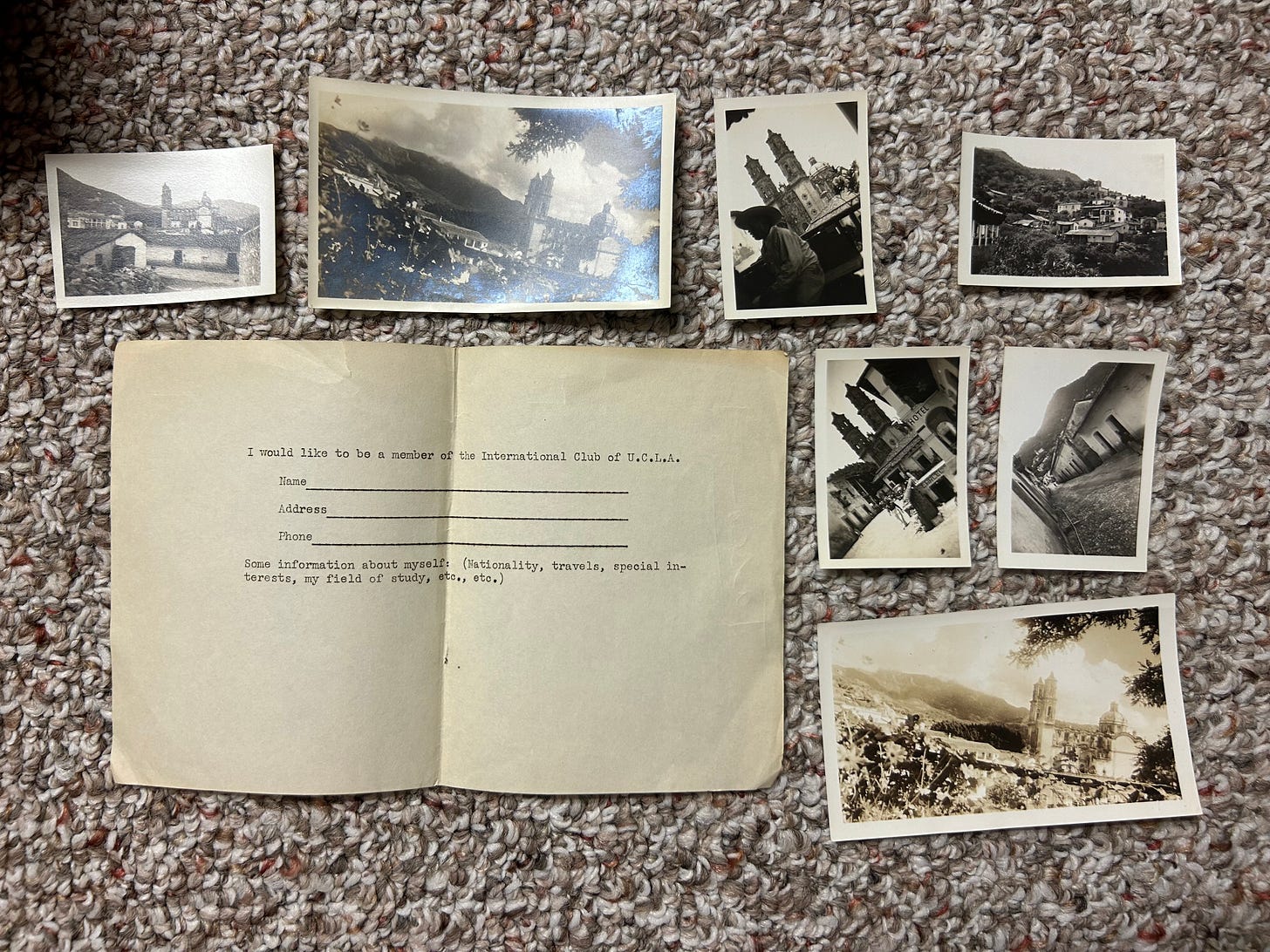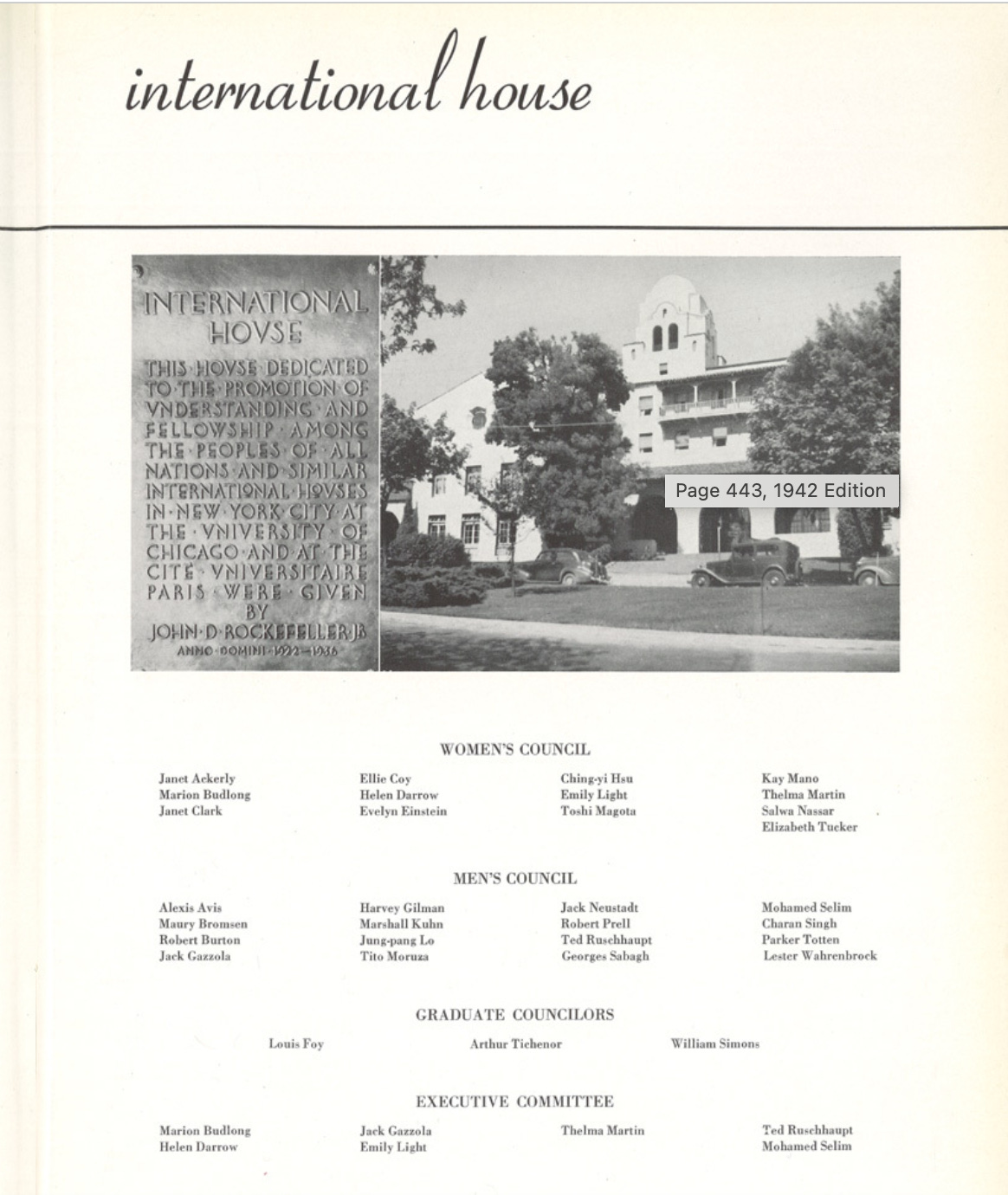I know my grandfather attended UCLA from Spring 1940 until Summer 1941, and that he was a student at Berkeley from 1941-1942. I know this because I have his college transcripts. But aside from this piece of evidence, it is astonishingly difficult to find information about his life as a student.
While my grandfather kept meticulous records of his high school years in Budapest, saving his notebooks, photographs, and other memorabilia, he kept almost nothing from the first years he spent in the US, when he was a student in UCLA and Berkeley.
I have come to think of him as the invisible student: present, but not part of college life. This is especially true when I look at the yearbooks and newspapers that were produced at both UCLA and Berkeley.
I have access to the yearbooks from UCLA from 1940 and 1941, and the Berkeley yearbooks from 1941 and 1942. I also have access to dozens of digitized daily newspapers from 1941-43 at both Universities: the Daily Bruin and the Daily Californian.
According to the UCLA and Berkeley yearbooks, there is no George Gerbner: he is even missing from the list of graduating seniors in 1942 (the year he supposedly graduated). I checked 1943’s yearbook as well, just in case: no George Gerbner.
I have done text searches for “Gerbner” in every yearbook, and in the digitized student newspapers: no mention of a Gerbner. I even looked up the “International Club” at UCLA: I know that Opapa at least attended a meeting, because he used their sign-up sheets to organize his photos from his 1939 travels:
In the yearbooks, I found references to other students who were part of the International Club of UCLA, but no George Gerbner. In the Daily Bruin, UCLA’s newspaper, there were a few mentions of UCLA International Club events, like this one from July of 1941, just before Opapa left for Berkeley:
Perhaps Opapa attended the “summer session activities of the International Club,” but more likely, he did not. He may also have visited the International Club at Berkeley, which was pictured in the 1942 yearbook. But he didn’t play a major role in the community, and was not mentioned in the list of officers.
As I searched in vain for any evidence of my grandfather’s college life, something else happened: the more I looked at the yearbooks and daily newspapers from UCLA and Berkeley, the more they appeared strange and foreign, filled with sports teams, clubs, fraternities, and sororities. If you were a member of one of these, it was surely a place of belonging. But to an outsider, they seem alienating .
In the yearbooks, the centrality of Greek life at both universities is especially pronounced. Page after page shows pictures of the different fraternities and sororities. The one below, from Berkeley’s 1942 yearbook, is typical:
As I flipped through the pages, I started to get a better sense for why these American universities may have felt bizarre alienating for a newly arrived refugee. My grandfather’s decision to transfer away from UCLA started to make more sense: he felt adrift, unsure where he fit in, and surely worried about his family in Budapest.
I also started to understand why my grandfather chose not to keep much from these years: I think he wanted to forget them.
***
Nuts to crack:
Why wasn’t Opapa pictured in either the 1942 yearbook or the 1943 yearbook? Did he not want to pay for a senior photo? Were only some people pictured? Did he just not care?







It’s so sad to think about how lonely and isolated Opapa must’ve been.